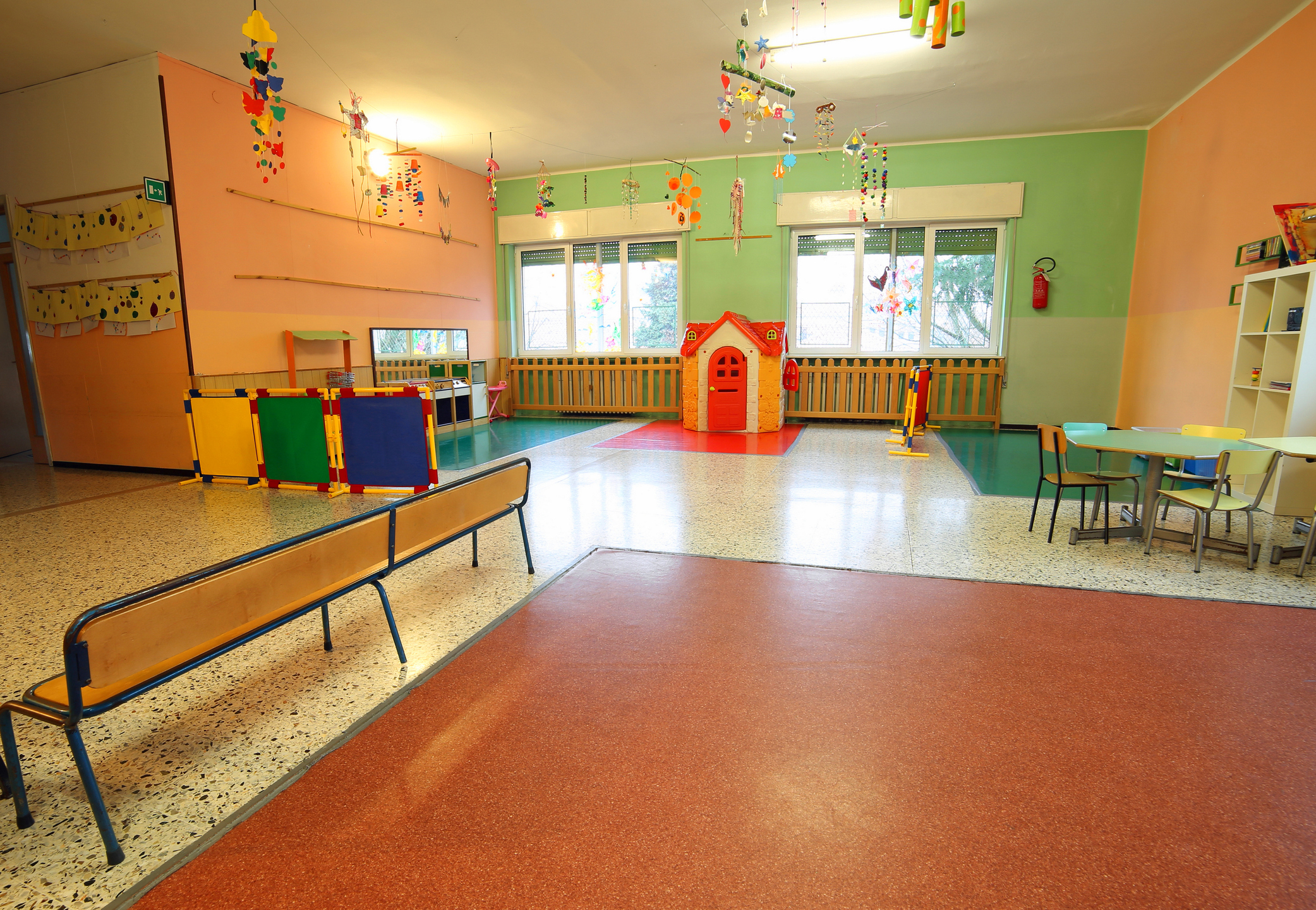Beth Fukumoto: Fixing The Gender Pay Gap Means Tackling Child Care And Paid Leave
Women in Hawaii keep up pretty well with men until they have children or take on the responsibility of caring for relatives.
April 8, 2024 · 6 min read

About the Author
Women in Hawaii keep up pretty well with men until they have children or take on the responsibility of caring for relatives.
Hawaii’s women are closer to closing the gender wage gap than their national counterparts. Barely.
According to the University of Hawaii Economic Research Organization’s latest forecast, the average male in Hawaii out-earned the average female by 50%, compared to 69% nationally. More specifically, the study examined earnings across occupation and education, finding that men earned more than women at every education level and in 82% of occupations.
One cause of this disparity is the “motherhood penalty,” a term used to explain the financial penalties that often accompany motherhood.
UHERO Research Economist Rachel Inafuku, who plans to release a more in-depth report later this year, explained in an email that “when examining the earnings disparity between married men and women in Hawaii, women generally earn slightly less than men in their 20s. However, this gap widens significantly starting in their early 30s, as men’s earnings increase at a notably faster pace than women’s.” The gap only grows from there.
Child care is a major factor that contributes to the post-30s earning cliff facing women, as mothers with young children are more likely than fathers to reduce their work hours. In Hawaii, the high cost and low availability of child care exacerbate the problem.
According to a 2023 study by the Department of Human Services, Hawaii families pay an average of $875 to $1,821 per month for child care. Families who can afford the steep price are still likely to struggle to find an open slot, and families who rely on subsidies fare even worse. But Hawaii lawmakers are trying to change that.
The “Ready Keiki Initiative” unveiled by Lt. Gov. Sylvia Luke aims to create 80 preschool classrooms by August 2024 and 465 classrooms by 2032 at public schools, private businesses and University of Hawaii campuses. The initiative also intends to increase subsidies that benefit lower-income families and build partnerships to train new preschool workers.
The plan is an important step toward closing Hawaii’s pay gap. As Lt. Gov. Luke pointed out in an email, “Reaching pay equity and supporting women in the workforce requires a multifaceted approach, and we know that the burden of child care is a huge barrier for mothers returning to work.”
“When we launched Ready Keiki last January, our vision went beyond supporting our youngest learners; it extends to how we can provide economic stability for our local families,” Luke added. “By expanding free, public pre-K seats statewide and increasing child care subsidies for low- to middle-income families, we’re not just ensuring our keiki are ready for their futures, but also ensuring their parents can be ready to rejoin the workforce.”

State legislators are also working to address Hawaii’s early education shortage with House Bill 1964, which passed its final committee on Thursday. The bill establishes a child care provider subsidy and bonus program.
The program is one of five proposals by the Women’s Legislative Caucus, and Rep. Linda Ichiyama, one of four caucus co-conveners, said the caucus hopes this bill will help close the wage gap in Hawaii.
“It took a worldwide pandemic for everyone to realize that child care is essential,” Ichiyama said in an interview, noting that “preschool workers are often the lowest paid educators with one of the hardest jobs.” The result is that many of Hawaii’s child care workers change occupations because they can make more money elsewhere. If it becomes law, this bill could help sustain the existing workforce and attract more people into the field.
Of course, as Ichiyama points out, “Child care is incredibly important if we want to address the gender gap in the workplace but we need to look at it from all angles.” Paid family leave is another important piece of the puzzle.
This session, lawmakers introduced at least ten bills to provide paid family leave. In addition to individual proposals, the Kupuna Caucus, Hawaii State Association of Counties, Working Families Caucus, the Maui County Council, and the House Minority Caucus each submitted a paid family leave proposal. The broadening interest in paid family leave is unsurprising, especially in Hawaii. In addition to child care needs, Hawaii’s rapidly aging population will see a greater need for care, and women are more likely to take time off work to provide it.
Multiple bills to establish a paid family leave program for state and county employees went unheard during this session.
Yet, despite the idea’s seeming popularity, the only bill to receive a hearing died in the House Finance Committee. Unlike most of the other paid family leave proposals, House Bill 2527 would have provided paid family leave for public and private sector employees by creating a mandatory payroll deduction to fund the program. Unsurprisingly, this approach proved controversial even with some of the state’s most vocal advocates.
In their testimony, the United Public Workers, who represent approximately 14,000 of Hawaii’s public employees, explained that the payroll deduction “would result in an additional financial burden for our members” and pointed out that “what is intended to serve as an employee benefit may prove to serve as a deterrent to employment in the public sector.” I happen to agree. Hawaii residents are already experiencing a higher cost of living than most, and an additional cost, even if it’s small, will be unpopular, at the very least. Lawmakers know this.
They also know that organizations like the Chamber of Commerce are natural opponents to any paid family leave bill that increases costs for businesses they represent. This bill doesn’t address the productivity costs businesses face from prolonging employee absences. Predictably, a number of Hawaii’s leading business organizations opposed it.
Lawmakers should be applauded for moving forward with initiatives to improve Hawaii’s child care shortage. The proposals will move Hawaii’s women closer to pay equity. However, family leave is an equally important component that is proven to improve gender parity, and it’s disappointing that the only measure the Legislature considered was one that drew criticism from businesses and unions alike. Multiple bills to establish a paid family leave program for state and county employees went unheard during this session. If the Legislature is serious about improving Hawaii’s leave policies and achieving gender pay equity, these bills would be a better place to start.
 Sign up for our FREE morning newsletter and face each day more informed.
Sign up for our FREE morning newsletter and face each day more informed.
Read this next:
Denby Fawcett: How A Young Man With Wanderlust Traveled The World For 50 Years Capturing Humanity In Photographs
By Denby Fawcett · April 9, 2024 · 9 min read
Local reporting when you need it most
Support timely, accurate, independent journalism.
Honolulu Civil Beat is a nonprofit organization, and your donation helps us produce local reporting that serves all of Hawaii.
ContributeAbout the Author
Latest Comments (0)
Men should equally share responsibility for childcare
Swimmerjean · 1 day ago
Still think you're awesome,Beth!
Maluhia8 · 2 days ago
While these improvements are needed. The fact remains that many people are not making a living wage. We need to raise the standard of living for our workforce.
Richard_Bidleman · 2 days ago
About IDEAS
IDEAS is the place you'll find essays, analysis and opinion on every aspect of life and public affairs in Hawaii. We want to showcase smart ideas about the future of Hawaii, from the state's sharpest thinkers, to stretch our collective thinking about a problem or an issue. Email news@civilbeat.org to submit an idea.

